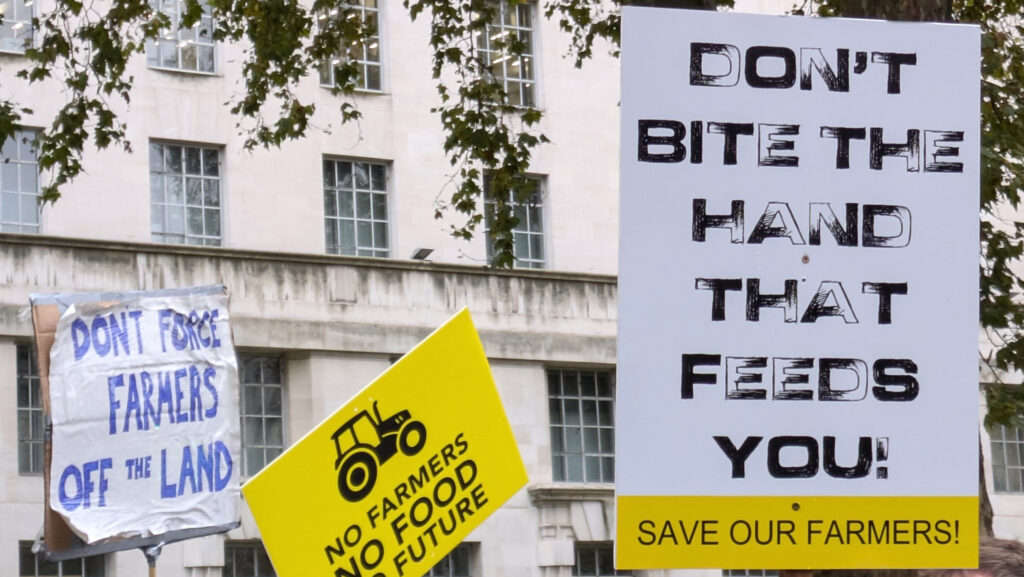Opinion: Farming prospects better served by our customers
 © MAG/Martin Ward
© MAG/Martin Ward I was just reflecting on the hoary old adage: “Live as if you will die tomorrow, but farm as though you will live forever.”
This evergreen advice is now also proving the best tax-mitigation strategy.
Dying pretty much immediately or not at all is a neat way to navigate the inheritance tax (IHT) changes without having to stump up some money.
See also: Middlemen set to benefit from Budget at farmers’ expense
I didn’t want to go on about IHT, partly because I predicted it was going to happen in my last column, but also because we columnists were asked not to simply repeat the same point each week.
How can you not mention it, though? Everyone’s obsessed with it, and it seems everyone has a slightly different take.
I didn’t go to the rally in London last week (the risk of being inadvertently photographed next to Nigel Farage or Katie Hopkins was obviously too great), but how can you deny the effectiveness of a national protest which knocked America bombing Russia and Putin threatening nuclear war into the second item on the BBC news?
I know a lot of people who were in London, and I hear that the day had an extraordinary sense of community.
It was a much-needed outlet for frustration after an especially challenging few years, and it brought important voices into the public debate.
Of these, I thought James Rebanks in The Times was the best, and Jeremy Clarkson’s petulant outburst and unhelpful conflation of farming with shooting was one of the worst.
As someone who followed the coverage avidly at home, I was viewing proceedings from the same vantage point as the general public.
I thought the media was largely sympathetic, but the messaging from individual farmers didn’t always sit comfortably alongside the facts.
There were clearly a large number of people at the protest whose personal wealth sits well below the tax threshold, and viewers were left wondering why they were there.
It is now time for the rural community to drop the outrage and calmly communicate the nuances of the argument so that we don’t lose public support.
Anyway, I was in London the day after the protests at the M&S headquarters for its Produce Suppliers Conference. This too was a coming together of like-minded farmers to tackle things as a group.
Obviously retailing is difficult right now, but, through hard work and forensic use of facts, M&S is bucking the trends with sales and profit growth.
I came away from this event with a sense of belonging and of being valued, but also with a clear set of expectations of what is required of me in the year ahead – increase sales by 15%, lower our carbon footprint, improve quality and deliver value. Challenging but fair.
I don’t wish to sound glib or oversimplify the situation for farmers who are struggling right now, but not all of our solutions lie with the government.
British people like eating local food and they absolutely love visiting farms, and I believe our prospects can be better served by our customers rather than politicians.
I really hope the government comes up with a fairer transition to land taxation and sets the threshold a bit higher (ideally a million quid above my net worth) but there are other solutions to our problems out there, and we farmers must be seen taking advantage of them.

